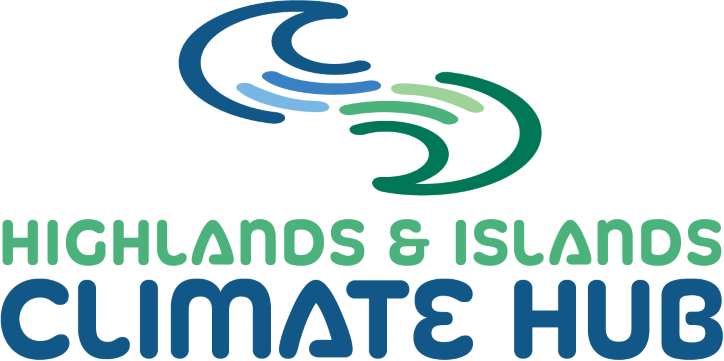“You can’t eat the landscape”
Reflections on the HTSI Poverty Summit - 24th April 2023
Last week along with others working in the Third Sector across Highland Region, I attended the Highland Poverty Summit arranged by HTSI at Ness Bank Church, Inverness. Speakers at the event ranged from Iain Mackenzie (recently retired, or is he?) from HTSI, Sue Lyons, Poverty Alliance & HUG Board Member now a PhD Student, Joseph Rowantree Foundation, Poverty Alliance Scotland, Children’s Commissioner Bruce Adamson and Lindsay Graham, the Deputy Chair of the Poverty & Inequalities Commission.
Key takeaway from the day is the quote and now title of this article, “You can’t eat the landscape” from Sue Lyons which to me sums up the Highlands and poverty. We live in a beautiful place, spoiled with scenery but poverty is endemic across the region with people genuinely struggling to live and facing barriers preventing improving lives including transport, housing and access to services.
I was reminded throughout the day of the last time I was in Ness Bank Church for an event. Prior to Covid-19 I attended the Highland Food Poverty Summit back in I think late 2019/early 2020 and couldn’t help but reflect on that event during this one with the question being asked, wasn’t one of the ideals in the early days of Covid-19 that we might emerge with new ways of thinking, new ways of doing, the shock of Covid-19, the pulling together of communities, might result in us doing things better as a society to address the issues? Instead we are still where we are. As remarked on the day, the now cost of living crises is not new in Highland, we’ve been experiencing high levels of poverty across the region as we were decades ago.
With poverty comes stigma which in term impacts on mental health and wellbeing remembered throughout the day of hearing Iain Mackenzie of HTSI speak at that Highland Food Poverty Summit on his experienced in South America (I hope I have all of this story right!) of working there with an undiscovered group many years ago, civilisation having failed to reach them but living happily as hunter gatherers. Twenty years later awareness of and what we construed as civilisation (globalisation) had arrived, awareness of TV, labels, technology and subsequently due to the comparison of their lives to how other lives with ‘things’ in them now that happy lifestyle was full of comparisons, depression and mental health issues. Relative poverty. Living without is one thing but comparing yourself to others who have lowers self esteem and impacts heavily on mental health and wellbeing.
An Oxfam briefing in 2022 revealed that during Covid-19 globally approximately one new millionaire was created in the world every 30 hours. At the same time nearly a million people were pushed into poverty at the same rate. Not all of those in Highland region it remains to be said! But with the rich getting richer and the poor getting poorer with the cost of living crises making that poverty more acute how do we address these issues in our Highland communities?
Now you may be reading this and wondering where climate comes into it? We are after all a climate action hub and there to support communities taking climate action throughout the region. But is solving these deep inequalities in our communities different than providing solutions to the climate emergency? Both require societal changes and from the work I’ve done in the past with Thurso Community Development Trust they don’t need to act in a silo from each other. Climate Action projects throughout our region improve wellbeing, we can see that through growing projects, through Sharing Shed and Tool Libraries. But we are barely touching the surface on the changes to address both poverty and the climate emergency. We still have those who have, fuelling consumption and those who haven’t living in ways that they shouldn’t be. Shouldn’t everyone have the right to a warm safe home, the right to food?
None of the answers are here but there is a cry for things to change. For us to use our voices as community leaders to challenge poverty across Highland. It can feel in crises (Covid-19 and now cost of living) that the expectation is on us as communities to provide solutions but then the power to create real and definite change is not with us. Could it be with us by using our voices more? By joining together across Highland? After all, we can’t eat the landscape…
To use your voice there are several ways that you can do this….
Take part in the Highland Poverty Action Network or if you are in Caithness the Caithness Poverty Action Group, other TSI’s or Poverty Action Networks may exist where you are, please let us know about them.
Join the Poverty Alliance, we have just done so at here at the Hub as we feel that making the change needed in the world means that we should be working across all of the issues and not solely focused on climate action. The Poverty Alliance have recently published a toolkit which was developed as an aid to support thinking and challenging stigma at a local level to help improve outcomes for families. It is very worth a look through to challenge some of the ways we might consciously and unconsciously create stigma in how we think and act about poverty.
Take a look at the Trussell Trust current campaign to guarantee essentials for all.
Community Groups
Ness Bank Church is the home of Inverness FoodStuff who provide support to all who face significant challenge in the Inverness community including financial hardship and homelessness. They tackle this by providing supporting the homeless and tackling social isolation, challenging food poverty and combating food waste, reducing harm and enabling people to improve their health and well-being. Lunchtime meals are provided by volunteers on a Tuesday, Thursday and Saturday.
